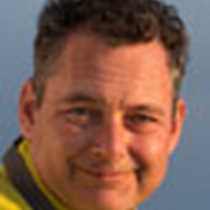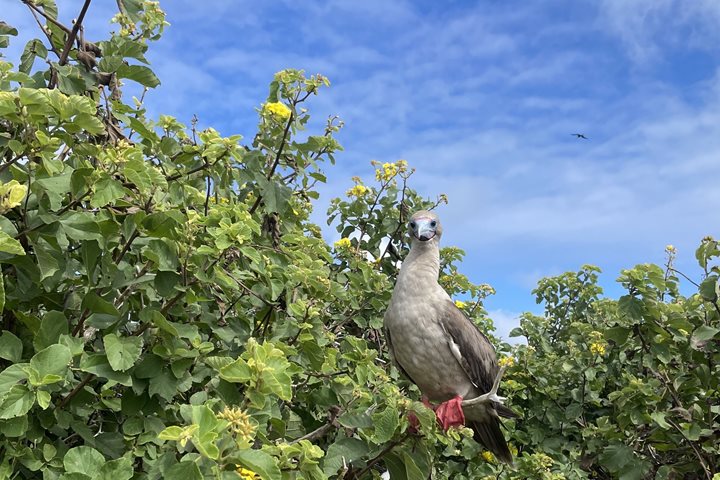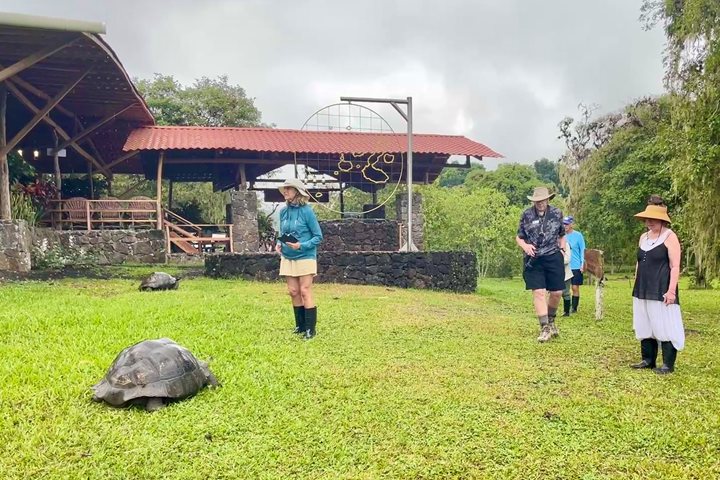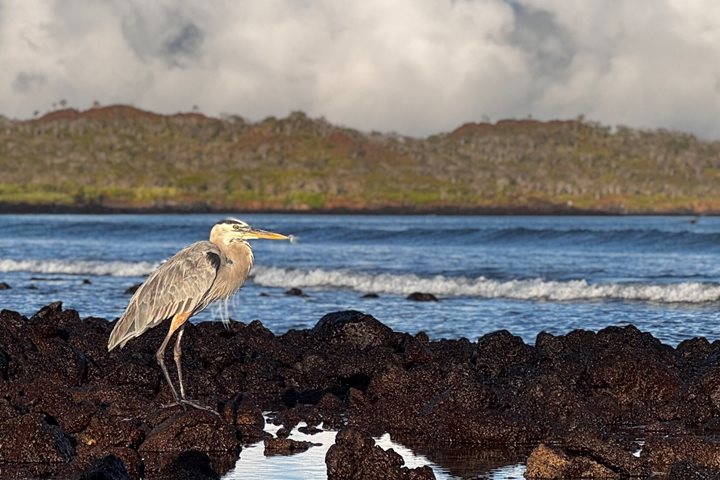Today we have two fantastic accounts of the day from our Grosvenor Teacher Fellows!
---
Today was amazing! My day started with an early morning debarkation onto the beautiful Santa Cruz Island. From there I went to the Charles Darwin Research Center where Galapagos Park Wardens have been breeding endangered tortoises for the last several decades. It was a wonder and a delight to learn all the rich history of the Galapagos and its unwavering affection and commitment to the turtles.
The afternoon turned into an experience I will not soon forget. I was transported up into the highlands of Santa Cruz and treated to an Ecuadorian feast in the jungle, followed by a tour of an authentic sugar cane mill. You have never tasted sugar until you tried sugar cane from the Galapagos! While all of that was more than I could have asked for, the highlight of my day was walking through the lava tunnels and getting the opportunity to stand within ten feet of endemic giant tortoises. These gentle giants were so peaceful and regal it astounded me.
This entire voyage has been outstanding and I cannot express my gratitude enough. While snorkeling, hiking, and turtle watching have been exhilarating, there is a beauty that is endemic to Galapagos, and that is the beauty of curiosity. It has been extremely cathartic to stand in the presence of so many animals who live without fear of my species. Due to the strict limitations placed upon this land, these animals have never had to endure the invasiveness that the human species often bring. This has enabled these creatures to live a life of curiosity and love. A life without fear is the most beautiful life that one can live.
Logan McWilliams
---
We are on day four of our expedition and the last few days have been a whirlwind. Between getting used to living on a ship with 60+ strangers, nonstop activities, and mind-blowing wildlife, it is hard to find the time to process everything. The amount of sleep is low but dopamine levels are high! Today was a different pace. We had a whole day on land dedicated to learning about the giant tortoises found on the archipelago and have a little taste of the local culture and cuisine. Not to repeat the exact same account that Logan so excellently documented, I wanted to share some of the revelations that I have had from today.
Getting to see wildlife up-close in its natural habitat has been so interesting. In most places in the world, animals generally flee when you get near them. In the Galapagos, it is well known that the animals are not afraid of humans, which has made them easy targets for early visitors to these islands. Pirates, whalers and buccaneers took an estimated 200,000 giant tortoises from the islands between 1700 and 1860 driving many species of them extinct and badly reducing populations. There are an estimated 10% of the original tortoise population remaining. On Espanola Island, the number of the tortoises were down to only 14 (and later a 15th one was found in San Diego). On other islands, tortoises were just shy of extinction, where a single member remained of an entire species in the case of the famous “Lonesome George” who sadly passed in 2012.
Seeing the recovery and breeding efforts being done at the Charles Darwin Research Station was incredible and driving up to the highlands of Santa Cruz Island, where the gentle giants were freely roaming around, was unbelievable. I could not believe how many of them we saw roaming outside. It was a glimpse into what life might have been like for these tortoises before humans ignorantly interfered. Hindsight is 20/20, as they say, and experiences like these give me hope that humans will have the foresight to make better decisions in living in balance with nature in our rapidly changing and evolving world. It reminded me that every individual has a role to play to keep our planet in balance. After learning about how these absolutely incredible creatures were almost not around, I want to take a magnifying glass to my walk of life and take steps to become part of the solution and not part of the problem. I do not want our generation to be responsible for the death of an entire species.
Julia DeMarines








